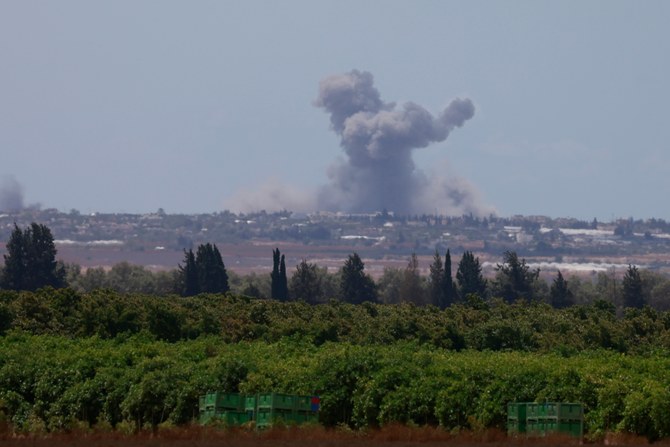
Over the past four decades, Iran’s state media has played a critical role in shaping the Iranian regime’s vision based on exporting the “Velayet e-Faqih” model to the region — and creating an idealized, false image of the regime. Also, it has played an important role in undermining and demonizing Iran’s rivals and competitors. Tehran’s slick media machine has pursued these objectives using a range of strategies, tailoring its rhetoric to target specific countries and communities, by taking into consideration their political, religious, and sectarian identities and positions.
To shape the political narrative overseas in a way that favors the regime, Islamic Republic of Iran Broadcasting (IRIB), under the auspices of the supreme leader, has launched a host of television channels in multiple languages ranging from Farsi and Arabic to English, French and Bosnian. Also, some channels have been broadcast in African languages such as Hausa and Swahili. These media outlets include Al Alam channel which targets the Arab world, the English-language Press TV channel, and Hispan TV which targets Spanish-speaking people in Spain and some Latin American countries. In addition to these channels, Iran also finances dozens of others in various Arab countries.
Over the 41 years of the Iranian regime’s existence, these channels have systematically disseminated the regime’s propaganda, particularly in neighboring countries.
This includes the regime’s favorite lie, claiming that all Arab regimes not allied with Tehran are stooges and pawns of Western powers. Also, they have agitated sectarian tendencies to undermine and delegitimize Sunni Islam. These steps, along with the cynical exploitation of the Palestinian cause, have been undertaken by Iran’s propaganda machine to promote the regime’s own hard-line extremist Shiite ideology, to serve its expansionist regional project.
It seems, however, that the sanctions imposed on Iran are now casting a shadow of doubt over IRIB’s propaganda platforms both inside and outside Iran.
Peyman Jabali, IRIB’s extraterritorial deputy for radio and television, revealed the extent of the multiple crises hitting the media organization, warning that several satellite channels could be taken off air due to IRIB’s inability to pay off accumulated debts.
Arabic-language Al-Kawthar satellite channel was the first Iranian regime propaganda outlet to be impacted by the economic crisis, with the satellite provider Eutelsat suspending its broadcasts in May this year over non-payment of accumulated debts. The Sahar Urdu TV channel, and one of the oldest Afghan Dari radio channels whose shows have been aired from the Afghan capital Kabul for four decades, had their broadcasts suspended for the same reason.
The budgets of some of the regime’s media channels have significantly declined while payment of salaries, including those of anchors, have been delayed.
Iran’s media has attributed the crisis that IRIB is experiencing to its failure to cooperate and present the necessary documentation to state-appointed regulatory bodies to review how $947 million allocated to it between 2009-2014 to develop infrastructure and supply new equipment had been spent. These are basic conditions for allocating new funds.
Such efforts to explain away IRIB’S problems are viewed with skepticism by most Iranians, given IRIB’s affiliation with the Supreme Leader, who relies upon it to execute the regime’s policies.
IRIB is one of the regime’s main tools to project soft power, serving the principles and objectives of Tehran’s foreign policy. However, the sharp decline in financial support to IRIB and Ayatollah Ali Khamenei’s uncharacteristic failure to intervene to resolve its financial crisis could be due to the Iranian regime’s disinterest in its overseas media empire, as a result of the following factors:
First, the failure of its overseas outlets to attract Arabs, especially after Iran’s expansionist and sectarian objectives became clear in recent years.
Second, their failure to present a persuading and coherent narrative to viewers worldwide.
Over the 41 years of the Iranian regime’s existence, these channels have systematically disseminated the regime’s propaganda, particularly in neighboring countries.
Dr. Mohammed Al-Sulami
Third, IRIB’s eagerness to constantly expand its media empire domestically and overseas leading to increased financial burden on the Iranian economy.
Fourth, Iran’s involvement in regional wars, especially in Yemen and Syria, significantly depleting its financial resources, requiring the regime to re-evaluate the budget allocated to various institutions, including IRIB.
Fifth, a recent shift in rhetoric from marketing the regime as a helper of the world’s oppressed, to promoting the regime’s expansionist regional plans. Iran’s interventions in Iraq, Syria, and Yemen have exposed it, resulting in it losing credibility even among Shiite communities that had until recently supported Tehran’s revolutionary slogans.
And sixth, the Trump administration’s maximum pressure policy against Iran’s regime, which has exposed the Iranian propaganda machine for what it is.
It is not an impossibility that Tehran might even be forced to deactivate its army of hackers and trolls in cyberspace to meet costs. If this happens, the Iranian regime’s presence and influence on social media would decline.
However, despite these realities, nobody should underestimate the regime’s capability to stage a comeback should conditions change; Tehran continues to work hard on galvanizing some of its media outlets and on intensifying its efforts to bolster regime institutions, and will seize any opportunity to make a strong and swift return if and when political and economic conditions improve. The world should remain alert and cannot afford to trust the regime as it has in the past.
Dr. Mohammed Al-Sulami is head of the International Institute for Iranian Studies (Rasanah). Twitter: @mohalsulami
Disclaimer: Views expressed by writers in this section are their own and do not necessarily reflect Arab News" point-of-view











